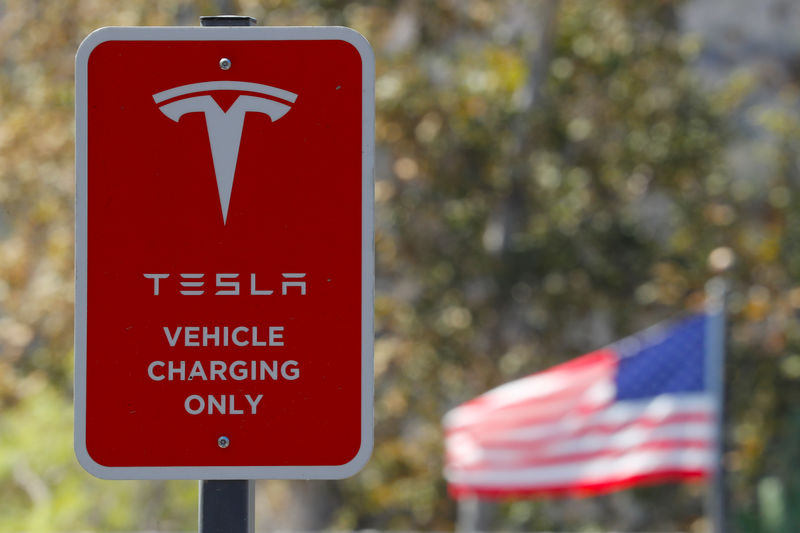Quiver Quantitative - Tesla (NASDAQ:TSLA) is projected to report a record quarter in electric vehicle (EV) deliveries, yet it's expected to fall short of CEO Elon Musk's ambitious 2 million annual target set at the beginning of the year. This shortfall comes amidst a competitive environment where Tesla, despite its industry-leading margins and global price reductions, faces stiff competition, particularly in China from rivals like BYD Co Ltd (SZ:002594.SZ). Tesla's aggressive pricing strategy and the general slowdown in EV demand have influenced other automakers, including Ford (NYSE:F) and General Motors (NYSE:GM), to reassess their electrification initiatives.
Analysts predict that Tesla's global deliveries for 2023 will reach approximately 1.82 million vehicles, marking a 37% increase from 2022, with around 473,000 units in the fourth quarter alone. However, Musk's earlier confidence has been tempered by economic headwinds like higher borrowing costs impacting demand. As 2024 approaches, Tesla faces new challenges, including the loss of federal tax credits in the U.S. and Germany's termination of its EV subsidy program, potentially necessitating further price cuts.
Market Overview: -Tesla likely sets a new quarterly delivery record despite falling short of Musk's 2 million annual target. -Price cuts and market leadership buoy stock despite slowing demand and looming subsidy losses. -2024 outlook clouded by potential price wars, regulation, and Model 3 refresh limitations.
Key Points: -Analysts estimate 1.82 million deliveries in 2023, up 37% from 2022, with Q4 hitting around 473,000 units. -Aggressive discounts, particularly in China, regained market share but squeezed margins. -US tax credit expiration and European subsidy cuts may trigger further price cuts next year. -Regulatory scrutiny, Cybertruck production challenges, and a limited Model 3 refresh cast doubt on 2024 targets.
Looking Ahead: -Tesla's high-growth era may be receding, with analysts expecting a "low-growth period" and margin pressure. -Maintaining market leadership hinges on navigating new price dynamics, regulatory hurdles, and potential product limitations. -Investors will keenly watch Cybertruck production rollout and the impact of the refreshed Model 3.
Regulatory scrutiny over Tesla's self-driving systems and vehicle recalls for safety updates have also added complexity to its operations. The much-anticipated Cybertruck and a refreshed Model 3 are not expected to significantly boost demand. Analysts from Deutsche Bank and RBC Capital Markets note that while the Cybertruck, with its divisive design, may not significantly contribute to Tesla's overall production volumes, it could enhance the brand's appeal.
Investors are closely watching Tesla's margins as it begins Cybertruck production and prepares to launch a more affordable car platform. Despite these hurdles, Tesla remains a prominent player in the EV market, and its strategies in response to these challenges will be crucial in maintaining its industry leadership.
This article was originally published on Quiver Quantitative
